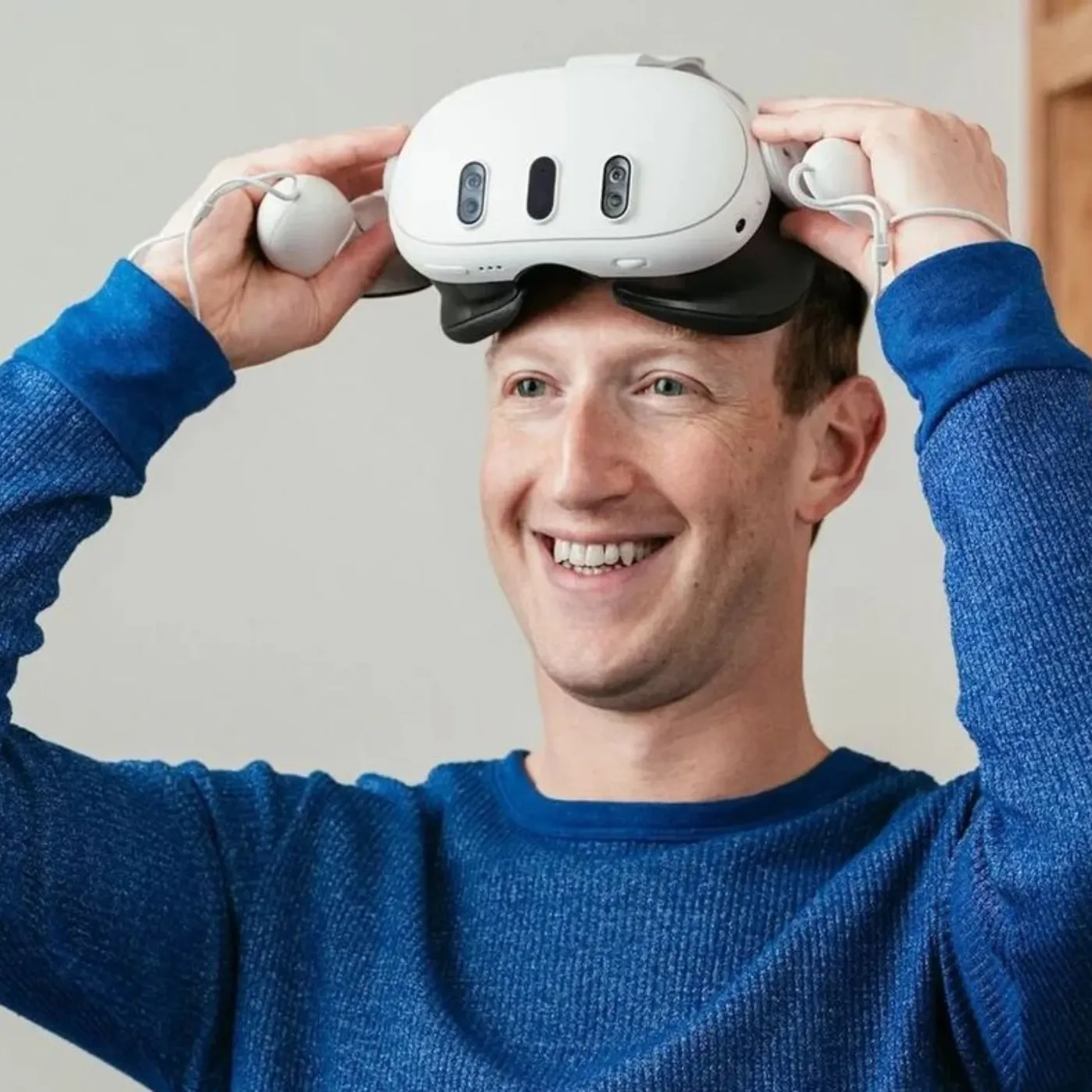Mark Zuckerberg, the tech titan behind Facebook’s rise, has unleashed a bold new vision for Meta that’s shaking the digital world. At LlamaCon 2025, Meta’s developer conference, Zuckerberg unveiled plans to redefine how we connect, work, and play online, driven by artificial intelligence (AI) and a reimagined social media landscape. From personalized AI chatbots to a free speech pivot, Meta’s online revolution promises to transform the internet in ways that are impossible to ignore. But is this a utopian leap forward or a risky gamble? Dive into the shocking details of Zuckerberg’s blueprint, the controversies it’s sparking, and what it means for billions of users across Facebook, Instagram, WhatsApp, and beyond.
LlamaCon 2025: The Dawn of Meta’s AI-Driven Future

LlamaCon, held in April 2025, was Mark Zuckerberg’s stage to showcase Meta’s pivot from metaverse dreams to an AI-powered online revolution. Gone are the days of Horizon Worlds hype; Zuckerberg now sees AI as the key to Meta’s dominance. In a candid interview with Stratechery’s Ben Thompson, Zuckerberg outlined how the Llama API—built on Meta’s open-source Llama 4 model—will empower developers to create hyper-personalized AI tools. “We’re building the future where AI isn’t just a tool but a companion,” he said, predicting that Meta AI will hit 1 billion users by year’s end.
The Meta AI app, launched in April 2025, is the cornerstone of this vision. Climbing to No. 2 on iPhone’s free download charts, it offers tailored answers by tapping into Facebook and Instagram data. Want AI to describe you in emojis? It knows you from years of posts. Need a chatbot for your business? Meta’s AI can handle customer queries autonomously, as announced at Meta Connect 2024. X posts buzzed with excitement, with @slow_developer noting, “Zuckerberg predicts AI tools will empower content creators over engineers to build digital experiences.” But there’s a catch: this personalization comes with surveillance. The Washington Post’s Geoffrey Fowler warned that Meta AI “remembers everything, even what you might not want it to,” raising privacy concerns.
Zuckerberg’s AI push isn’t just about chatbots. He’s betting on AI-driven social media, where algorithms create memes, suggest backgrounds for Instagram Stories, and translate Reels in real-time. Meta’s $60–65 billion investment in AI infrastructure for 2025, up from $39 billion in 2024, underscores the scale of this ambition. “This is a sprint,” Zuckerberg told employees at a March all-hands meeting, signaling an all-in approach to outpace rivals like OpenAI and DeepSeek. Yet, whispers of ethical missteps—like Meta’s alleged use of illegal data to train Llama 3—cast a shadow. Is Zuckerberg’s online revolution visionary or reckless?
Free Speech Pivot: Meta’s Content Moderation Overhaul
The most shocking element of Zuckerberg’s vision is Meta’s pivot toward free speech, announced in January 2025. After years of heavy-handed content moderation, Zuckerberg declared an end to third-party fact-checkers, replacing them with X-style community notes. “We’ve made too many mistakes with censorship,” he said in a video, citing the 2024 U.S. election as a “cultural tipping point” for prioritizing free expression. Meta also relaxed rules on topics like immigration and gender identity, with Zuckerberg pledging to “undo mission creep” that made policies “too restrictive.”
This move, detailed in a CNN analysis, aligns Meta with conservative sentiments, particularly those of President-elect Donald Trump. Zuckerberg’s exclusive announcement on “Fox & Friends” and the promotion of Joel Kaplan, a former Bush adviser, to chief global affairs officer, signaled a rightward shift. X posts erupted, with @charliekirk11 praising Zuckerberg’s “return to free expression” and @Geiger_Capital calling it a “cultural tipping point” led by Trump and Elon Musk. But critics, like disinformation expert Nina Jankowicz, slammed Zuckerberg for “bending the knee to Trump,” warning of a “race to the bottom.”
The overhaul isn’t just ideological. Meta’s U.S. content moderation team is relocating from California to Texas to “build trust” in less liberal regions, and automated systems will now focus only on severe violations like terrorism or fraud. Zuckerberg claims this will reduce errors, but fact-checkers like Bill Adair argue Meta’s accusations of bias are baseless, as their program required transparency and nonpartisanship. The free speech pivot could reshape social media, but at what cost? More harmful content is already appearing, Zuckerberg admitted, sparking debate about Meta’s responsibility to 3.3 billion daily users.
The Antitrust Shadow: Can Meta’s Revolution Survive?
Zuckerberg’s bold vision faces a formidable hurdle: a landmark antitrust trial that began in April 2025. The Federal Trade Commission (FTC) accuses Meta of building an illegal monopoly through its acquisitions of Instagram (2012) and WhatsApp (2014), alleging Zuckerberg bought rivals to squash competition. In court, Zuckerberg defended the deals, arguing Instagram’s filters and WhatsApp’s messaging enhanced Meta’s offerings, not stifled rivals. He cited TikTok and YouTube as proof of a competitive social media market, noting TikTok’s 2018 rise slowed Meta’s growth.
The stakes are existential. If the FTC wins, Meta could be forced to spin off Instagram and WhatsApp, gutting its $160 billion ad business and derailing the online revolution. Zuckerberg’s 2011 email, where he called Instagram a “large and viable competitor,” haunts him, as does a 2013 note warning WhatsApp could “start winning” in the U.S. Yet, Zuckerberg remains defiant, telling NPR that Meta made both platforms better for users. X sentiment is split: @DailyLoud cheered Meta’s free speech shift, but others, like @lewis_goodall, see Zuckerberg “trying to out-Musk Musk.”
Meta’s AI and content moderation plans hinge on surviving this trial. A breakup would disrupt Zuckerberg’s vision of a unified ecosystem where AI chatbots and social media feed off Facebook, Instagram, and WhatsApp data. Zuckerberg’s sprint to remake Meta, as The New York Times reported, is a high-stakes bet on innovation and political alignment to dodge regulatory bullets. Will it work, or is the scary secret Meta’s own overreach?
The Truth Behind Zuckerberg’s Revolution: Hope or Hype?

Mark Zuckerberg’s online revolution is a double-edged sword. On one hand, Meta’s AI advancements—like the Meta AI app and Llama 4—could redefine social media, making it more interactive and personalized. Zuckerberg’s claim that AI will “unlock a massive revolution in knowledge work” aligns with Meta’s WhatsApp success, where users already treat AI like ChatGPT. The free speech pivot, while controversial, taps into a cultural shift, as Zuckerberg noted in his Trump-friendly announcements. Meta’s $42.3 billion Q1 2025 revenue, up 16%, proves its financial muscle to fuel this vision.
On the other hand, privacy fears, ethical lapses, and antitrust risks loom large. The Guardian’s Arwa Mahdawi called Zuckerberg’s AI chatbot push a “dystopian digital bubble,” warning that Meta’s lax guardrails risk harm, like inappropriate interactions with minors. Business Insider argued Meta’s AI friends could deepen loneliness, not solve it, citing research that Facebook already exacerbates isolation. The antitrust trial’s outcome, expected by late 2025, could dismantle Meta’s empire, rendering Zuckerberg’s revolution moot.
For users, the online revolution is unavoidable. Meta’s 3.3 billion daily users will feel the ripple effects—more AI-generated content, looser content moderation, and potentially less privacy. Zuckerberg’s vision is bold, but the truth lies in execution. Can Meta balance innovation with responsibility, or will this shocking pivot backfire? As Monaco’s streets await Charles Leclerc’s next race, the tech world watches Zuckerberg’s high-stakes gamble. Stay tuned to Meta’s X updates and LlamaCon announcements for the next chapter. The online revolution is here—ignore it at your peril.






